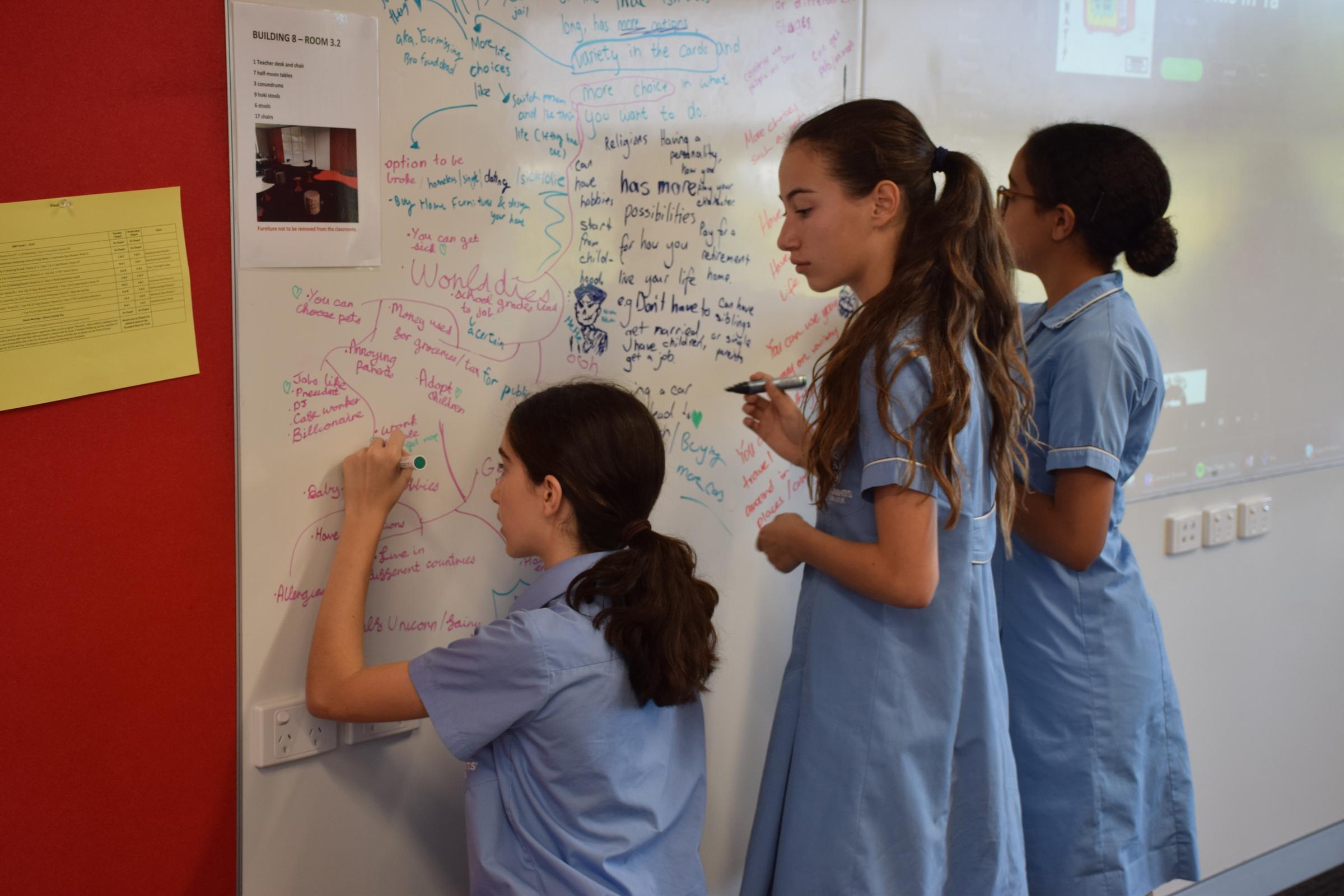YEAR 9 COMPULSORY SUBJECTS

HEALTH AND PHYSICAL EDUCATION LEARNING AREA
HEALTH EDUCATION
In Health Education, students develop the knowledge, understanding and skills to make decisions and take action to strengthen their sense of personal identity and autonomy, build resilience, manage risk and develop satisfying, respectful relationships. Through Health Education, students learn how to enhance their health, safety and wellbeing, and to contribute to building healthy, safe and active communities. It provides opportunities for students to develop skills, self-efficacy and dispositions to advocate for and positively influence their own and others' health and wellbeing. The dominant themes of the Year 9 Health Education program are assertiveness and decision making. Therefore, it aims to provide students with these skills in relation to a number of different topics. The course content encourages students to make well-informed decisions and exhibit assertive skills in order to avoid risky, unhealthy and dangerous behaviours.
PHYSICAL EDUCATION
Physical Education at the College provides an opportunity for students to achieve a sense of belonging and confidence, giving them ownership and accountability over their levels of Physical Activity, and achieving lifelong skills. Students participate in this subject for two periods (55 minutes) per week. Students will have the opportunity to acquire and develop skills in a variety of units, which may vary from term to term. These include but are not limited to a selection of the following units; Basketball, Netball, AFL, Soccer, Hockey, Softball, Athletics, Badminton, Volleyball, Tennis, European Handball, and new options such as ‘Fit for Life’, which allows students to learn varied methods of training, different workout options such as resistance training, cardiovascular training, intervals and develop an understanding of why physical activity is so important, without competitive sport being the focus.
Opportunities are provided for students to refine and consolidate skills and strategies for effective leadership and teamwork, and consistently apply ethical behaviour across a range of movement contexts. The Health and Physical Education curriculum provides opportunities for students to develop, enhance and exhibit attitudes and values that promote a healthy lifestyle. It explores ways for students to evaluate their own and others’ performances through analysis of skills and movement patterns using basic biomechanical concepts.
When All Saints’ College students complete their time at the College, we want them to enter the community with values for a healthy and active lifestyle and a lifestyle that values wellness and wellbeing.
LIFE SKILLS
All students in Year 9 study Life Skills for one period per week. This is a course designed specifically for our students' particular needs and provides an opportunity for discussion without the pressure of assessment. Issues relating to the students' lives and development are overtly explored, providing another dimension in their holistic education.
Overlaying all topics, students are encouraged to examine the values which influence their thoughts, feelings and actions. Covering topics such as kindness, tolerance and forgiveness, they will develop clarity about their own values, learn to recognise shared values, and develop understanding and respect for those with a different perspective.
A 'Futures' unit helps the students explore work options and prepare for future subject choices. Looking beyond their own needs and wants the concept of Service is discussed in preparation for the specific opportunities in Year 10. The 'Rights of a Child' are examined in a global concept and used to reflect on the development of Protective Behaviours.
RELIGION AND PHILOSOPHY
All students in Year 9 study Religion and Philosophy for one period per week. Each lesson has a period of time dedicated to 'Stillness and Silence' which allows the students to experience and develop relaxation and mindfulness skills. While exploring the beliefs and practices of the six major world religions − Judaism, Christianity, Islam, Hinduism, Buddhism and Sikhism, the students will be encouraged to reflect on the logic and reason behind each of these faiths. A number of societal actions such as Altruism are also examined, allowing the students to develop an understanding of religious responses to the world we live in.
Students are encouraged to reflect on their own response to faith and develop critical thinking skills in relation to religion.